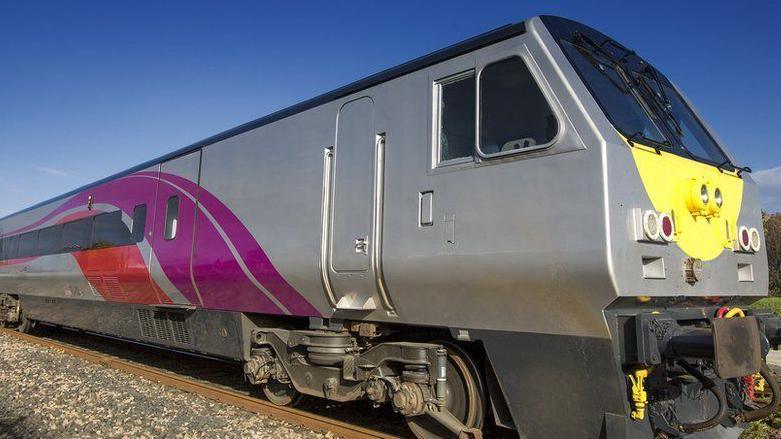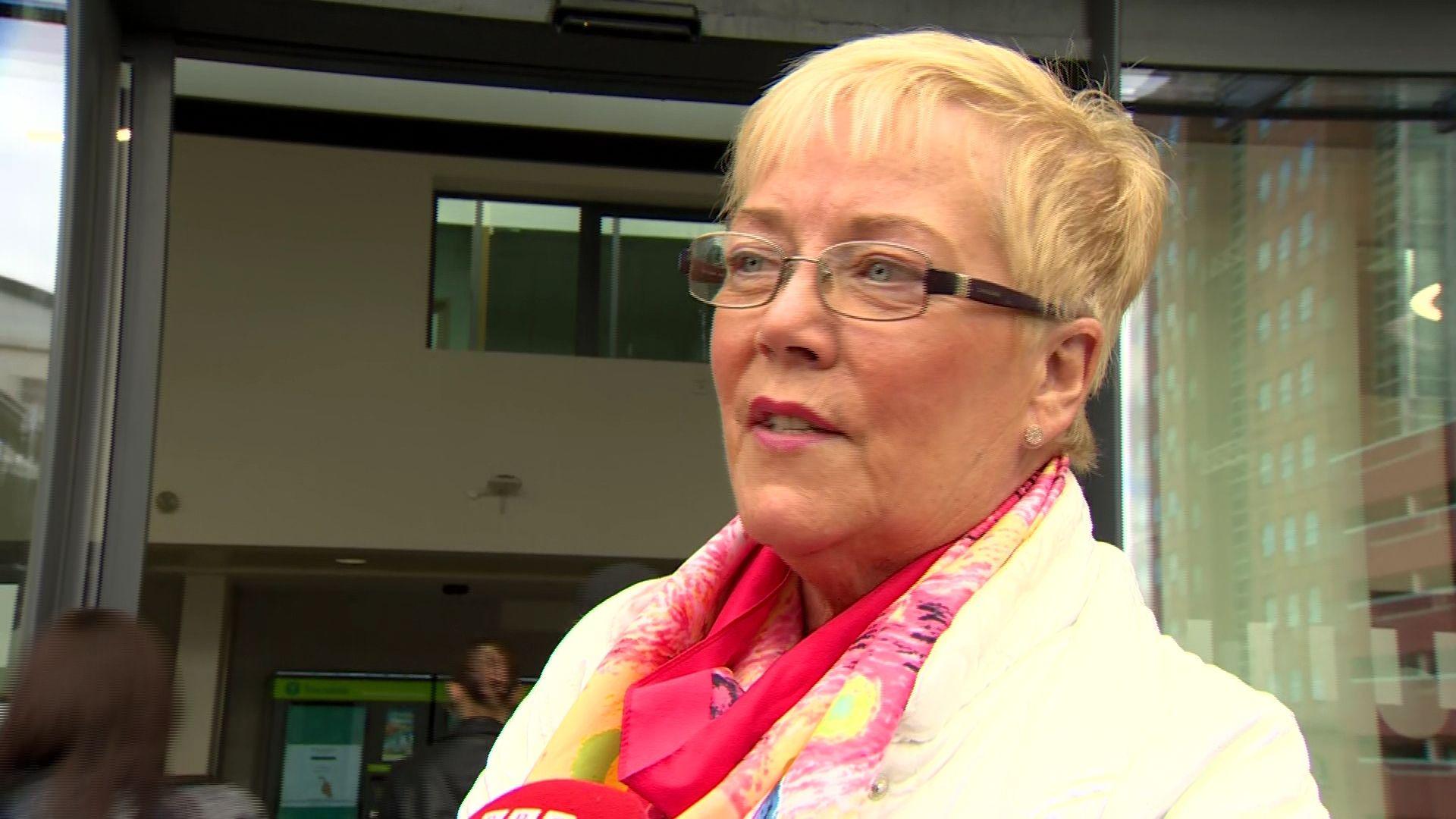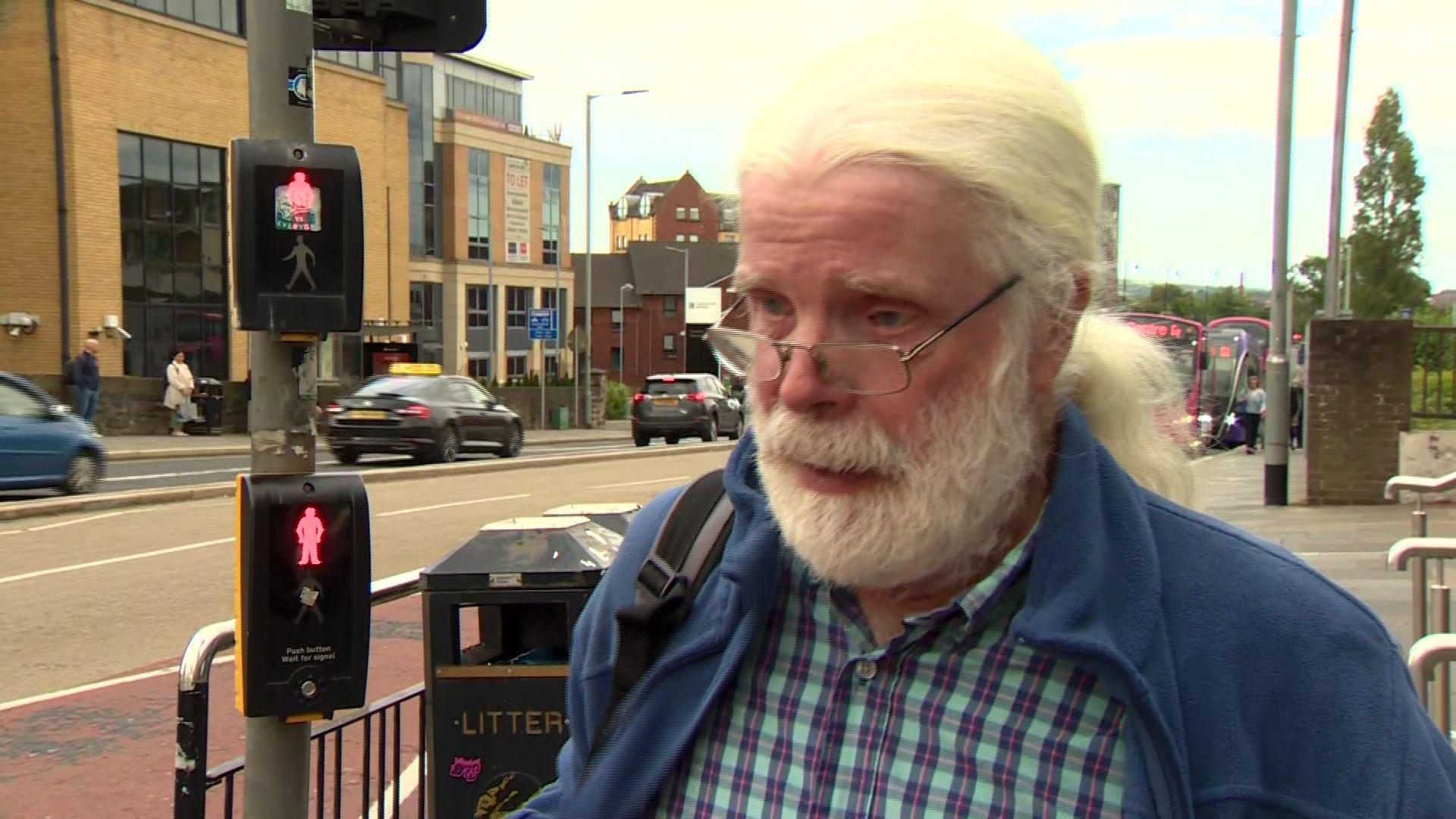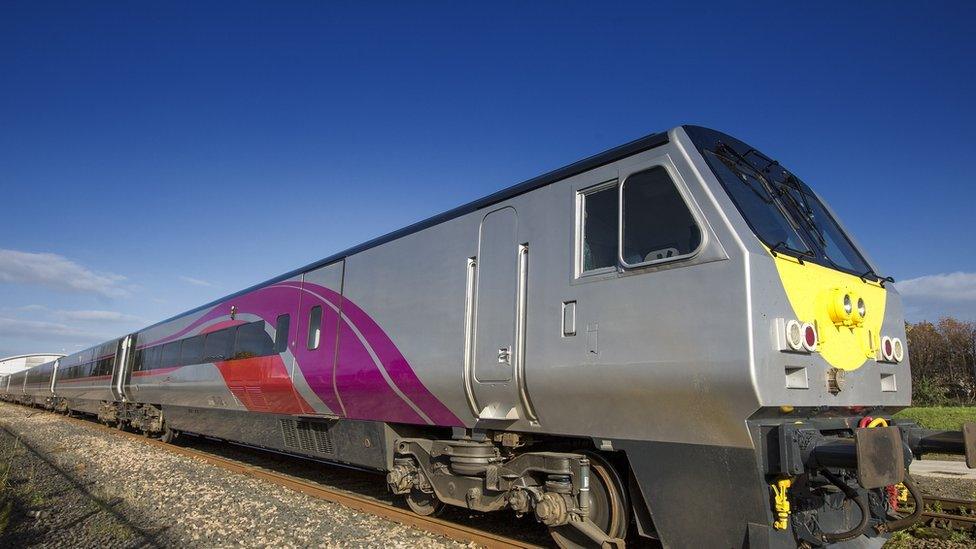Passengers from Belfast can pay double to Dublin

The Enterprise rail service is jointly run by Translink and Irish Rail
- Published
Rail passengers travelling on the Enterprise rail service from Belfast to Dublin can be paying more than double what passengers going in the other direction pay.
In fact, it can be cheaper to travel first class from Dublin's Connolly station to Belfast than it is to travel standard class from Belfast to Connolly.
The Enterprise service is jointly run by Translink and Irish Rail.
However, depending on which side of the Irish border you buy your ticket, it will determine how much you will have to pay, and the differences can be vast.

One woman from Northern Ireland, who was interviewed in Belfast, said the ticket prices should be the same
How much do tickets cost?
Figures from Translink and Irish Rail websites show that passengers travelling from Belfast Lanyon Place to Dublin Connolly Station on 1 July on the 08:00 service would pay:
Standard single £33
Adult plus single (first class) £48
Passengers travelling from Dublin Connolly Station to Belfast Lanyon Place on the 07:35 service on the same day would pay:
Flexible (standard) €15.99 (£13.50)
First class single €25.99 (£22)
Andrew McDonald, an independent rail campaigner, does not believe there is any justification for the gap in prices.
“I know Translink and Irish Rail do work together when it comes to their cross-border services, but it feels like when it comes to the actual pricing and ticketing structure, they just do their own thing,” he told BBC Radio Ulster's Evening Extra programme.
“Maybe a bit more communication about how to meet in the middle with ticket prices, might be more beneficial.
“Maybe there is a strategy behind it we are not aware of, but if there is a strategy behind it, it would be nice to know why, because at the end of the day, it’s us the people that use the services that do suffer.”
At present, you can only book tickets for the Enterprise on the website in the country where your journey originates.
Currently, passengers from Northern Ireland cannot reserve a seat with standard or websaver fares.
NI passengers 'losing out'

A man from the Republic of Ireland said passengers from Northern Ireland are "losing out big time"
Steve Bradley, who chairs the Into the West rail lobby group, said there should be “no equivalent of a penalty fare depending which side of the border” you purchase your ticket for the Enterprise service.
“It is simply not justified to charge different people completely different prices for the same journey, just depending on where they start and where they end,” he added.
Translink said in a statement that the Enterprise service is operated as a joint venture by Irish Rail and Translink and that each company "has its own ticketing/IT systems, fare structures and special offers and operate in different jurisdictions with different government policies".
"The Republic of Ireland government has discounted public transport fares by 20% across the board, which includes Enterprise tickets for journeys originating south of the border," it added.
"All Enterprise customers originating from Northern Ireland will be able to book their seats online later this year."
BBC News NI gathered the views of the public on the price differences, outside Lanyon Place railway station on Tuesday afternoon.
One woman from Northern Ireland said it was “one island” and the prices “should be the same”.
“It’s the same, don’t complicate it, just keep it the same,” she added.
“It just confuses people.”
Another man from the Republic of Ireland said passengers from Northern Ireland are “losing out big time”.
He added that the subsidy in the Republic of Ireland could not go on “all the time”, but to encourage the use of public transport “it is not a bad thing” and as a beneficiary of it “I am smiling”.
Paying different prices 'not uncommon'
President of the Chartered Institute for Highways and Transportation (CIHT), Karen McShane said it was "not uncommon" to pay different prices if you book with different companies.
She used the example of having to pay different prices when booking through different companies for return flights between Belfast and London.
She told BBC Radio Ulster that, "we need to be funding our public transport services, otherwise we are going to lose it," she added.
Related topics
- Published9 April 2024
